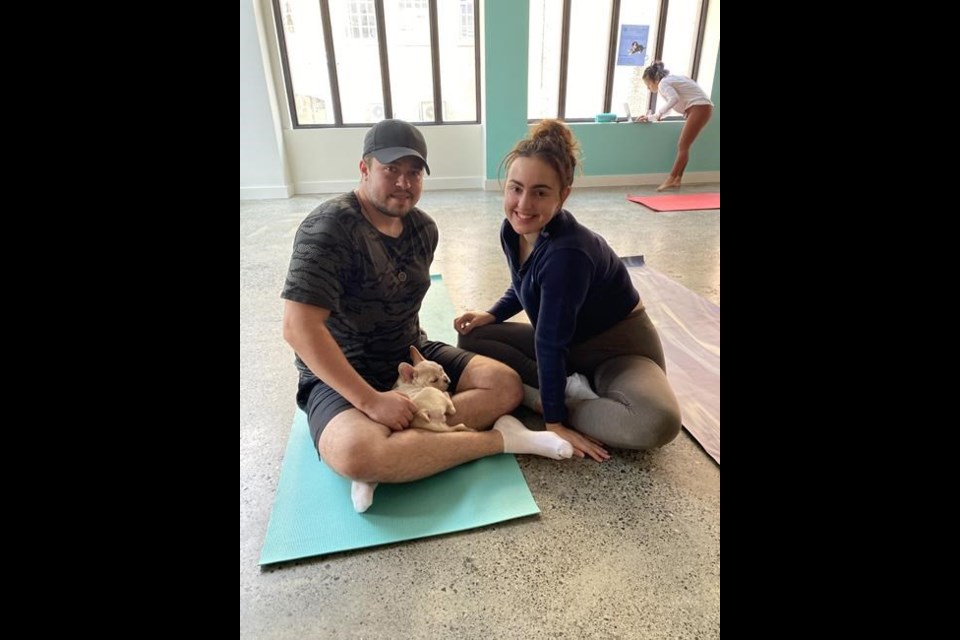Sovereign Norris and her partner don't want to have kids.
“Economy wise, nature wise, with everything going on such as pandemics and world issues, I decided that I didn't want to bring a child into this world," said Norris.
“I have kind of always known that I wanted to (be childfree) ... When I met my partner, he felt the same way.”
Instead, the Vancouver-based couple adopted a guinea pig and are saving up for a dog.
The two are choosing to spend their money on basic expenses and things like travel and dining out, while putting the rest of it aside for investments and savings.
The Generation Z couple is among many Canadians embracing the dual income, no kids (DINK) lifestyle, a term that was coined in the 1980s and is making a resurgence as a result of economic and societal conditions.
DINKs have more disposable income compared with couples who live together and spend their money on raising children.
In sa国际传媒, most estimates peg the average cost of raising a child each year until the age of 18 in the range of $10,000 to $15,000 — a price tag that many young adults can’t or simply don’t want to bear.
For Norris and her partner, the main draws of the DINK lifestyle are the financial and personal freedom that come along with it.
“In Vancouver, we live downtown, but we can go to a nearby island, we can go to an Airbnb and we can invest and not feel like we're behind in life,” said Norris.
“We in general don't ever want kids because we have just fallen in love with this lifestyle.”
Don Kerr, a demographer who teaches at Kings University College at Western University, said part of the reason people were putting off having kids or forgoing parenthood altogether in the ‘80s was that more women were entering the workforce in sa国际传媒.
And women’s participation in the workforce has only increased since then, with more women taking up full-time jobs that require “major time commitment,” he noted, which is likely one of the main factors in people choosing to be childfree or delaying parenthood today.
COVID-19, which “threw us all for a loop,” is also a contributing factor, said Kerr. sa国际传媒’s fertility rate reached a record low of 1.40 children per woman in 2020, the same year the global pandemic was declared, according to Statistics sa国际传媒.
There are other factors likely at play today, Kerr pointed out, such as the cost of housing being out of reach for many, high inflation rates and more people turning to fertility clinics in their late 30s and early 40s.
But underlying all these factors, said Kerr, are the difficulties that many young adults are facing when trying to establish themselves economically in sa国际传媒 — an issue that’s exacerbated by the growing precariousness of work.
“People who are struggling the most economically in my mind are those that are trying to establish themselves in the labour market,” he said.
“And so who are we speaking of? We're talking about young adults leaving high school or college or university, as well as new Canadians.”
Angela Iermieri, a financial planner at Desjardins, said people should view having children like any other project or goal they have in life.
“Get informed and educated on the help you can get, whether it be government help or guidance on how to help you save up to (get) there,” she recommended. For example, she suggested receiving guidance from a financial planner, researching different government supports available to parents like the sa国际传媒 Child Benefit, figuring out the cost of childcare depending on where you live, as well as determining the income that you’ll have if you or your partner go on parental leave.
“There are ways of helping you put that money aside and help guide you through this process, so it shouldn’t be a showstopper,” said Iermieri.
As for people who choose to be DINKs, Iermieri recommended having an open conversation about how you and your partner plan to manage your finances.
“Is it according to your income ratio? Are you going to split everything 50/50? Is the partner that has a larger income going to take on a bigger part of the expenses or the savings?” she said.
“It's got to be for today's budget, but also for your long-term goals and plans.”
Norris offered similar advice for those considering the DINK lifestyle.
“It's really important to have transparent talks about what your financial goals are,” she said.
“It's tempting to be like, ‘Oh, I have all this extra money, I'm just going to go on trips.’ Do that, but also budget accordingly."
This report by The Canadian Press was first published April 18, 2023.
Noushin Ziafati, The Canadian Press



